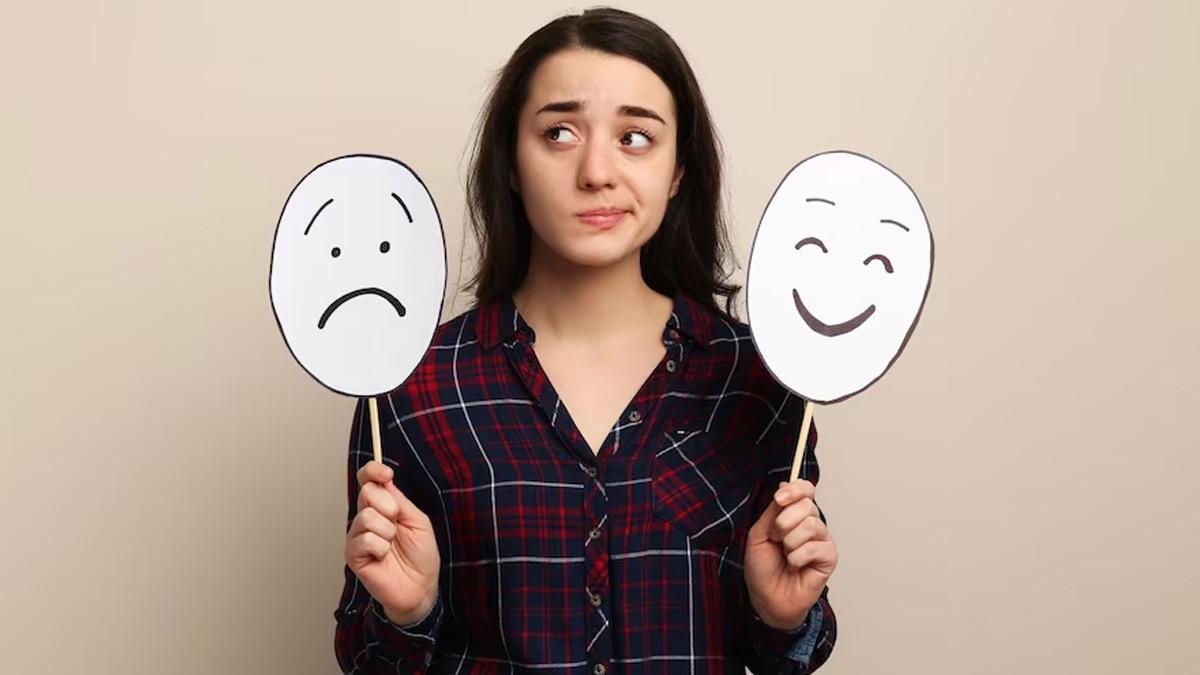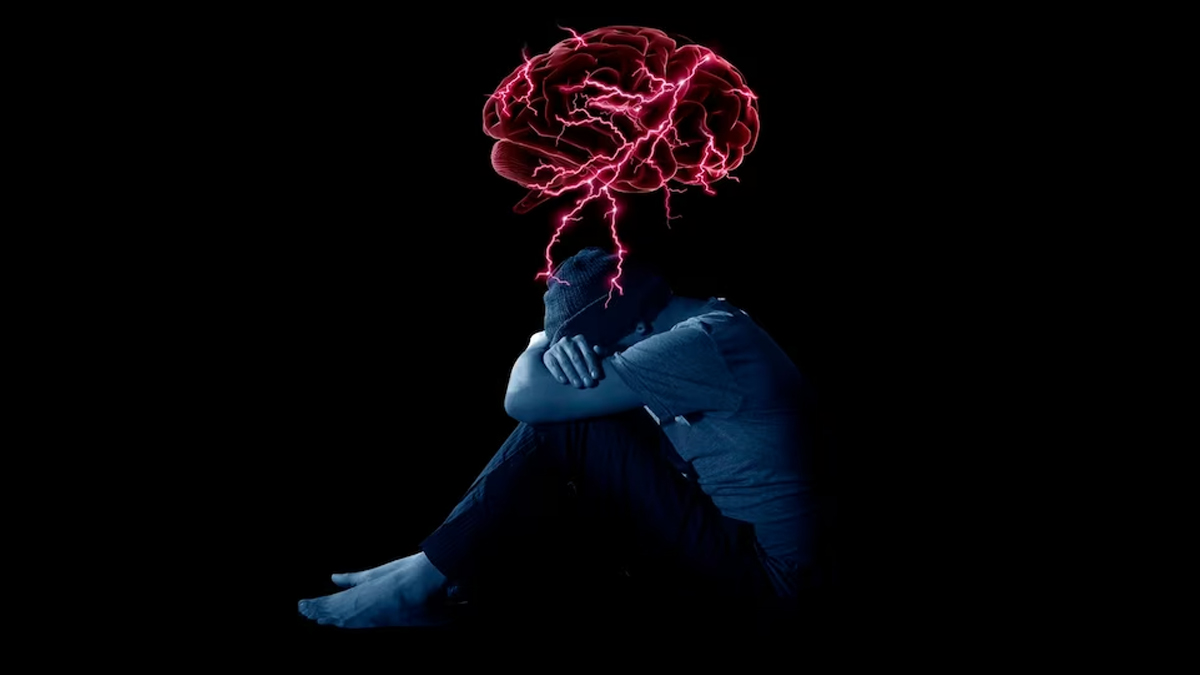
If you find yourself confused and suspicious about the ever-evolving realm of mental health, where new terms and diseases keep propping up every second, just think of the millions of physical health diseases that we are aware of currently. Similarly, the neglected mental aspect of health also shows myriad variations from person to person.
Table of Content:-
One such misunderstood and lesser-known mental health condition is the closely related mood disorders - mania and hypomania. While they share similarities, they also have distinct characteristics that set them apart. As per a study published by StatPearls Publishing, ‘Mania is different from hypomania because hypomania does not cause a major deficit in social or occupational functioning, and it lasts for a period of at least four days rather than one week.’
Understanding Mania And Hypomania

To understand the key difference between these mood disorders, the team of OnlyMyHealth spoke to Dr Sayantani Mukherjee, Consultant, Psychiatry, Manipal Hospital, Kharadi. “Mania and hypomania are part of the bipolarity spectrum, that lies on the side of abnormally ecstatic moods, the other side of which is depression,” she shared.
Hypomania: The State Of Elevated Mood
Hypomania is a mood state characterised by a heightened and euphoric mood, increased energy levels, and heightened creativity or productivity. It's typically associated with bipolar II disorder. Dr Mukherjee shared some of the key features of hypomania:
- Enhanced Creativity: Some individuals in a hypomanic state may experience bursts of creativity and productivity. They may start new projects or have a surge of innovative ideas.
- Decreased Need for Sleep: People in a hypomanic state may require less sleep than usual and feel refreshed after just a few hours of rest.
- Irritability: While hypomania is characterised by elevated mood, it can also include irritability or impulsivity in some cases.
- Lack of Psychosis: Despite being abnormally overexcited individuals do not have a hard time maintaining a grip on reality.
- Feelings Of Grandiosity: People suffering from hypomania also suffer from a grandiose sense of self where they feel that they can do anything, or are famous and important personalities.
- Increased Sex Drive: Individuals also feel intense pangs of sexual desire and an urgent need for gratification.
Also Read: Bipolar Disorder: What To Know About Its Different Episodes
Dr Mukherjee shared, “What happens in hypomania is that the person is in a slightly elevated mood, but it does not cause a significant impairment in their work or their life, and they can still remain functional. Hypomania usually lasts for around two to three days. If it goes beyond that, it switches up to mania which is not a sustainable state. So if your state of hypomania has not subsided by the fourth day, that means the onset of mania is upon you.”
Mania: The Extreme Mood State

Informing about mania, Dr Mukherjee said, “With the onset of mania, you can't function anymore. All the symptoms of hypomania will take over your life. You can't do your job. You can't do your day-to-day activities.” Mania is a much more severe mood state characterised by intense euphoria, increased energy, and impaired judgment. It is typically associated with bipolar I disorder. Here are the key features of mania as shared by Dr Mukherjee:
- Impaired Judgment: Individuals in a manic state may engage in risky behaviours, such as excessive spending, reckless driving, or substance abuse, due to impaired judgment and intense feelings of grandiosity.
- Psychosis: Manic episodes can involve psychosis, leading to delusions or false beliefs, and hallucinations or perceiving things that aren't there.
- Excessive Energy: People experiencing mania may have an overabundance of energy and be unable to sit still. They may engage in multitasking to an extreme degree or highly laborious activities.
- Agitation: Mania often includes increased irritability, restlessness, and agitation, as the brain wants extreme stimulation which is not easily provided through day-to-day tasks.
Key Differences Between Hypomania and Mania

Dr Mukherjee underscored, “Although the mode of diagnosing and treating mania and hypomania is the same, hypomania usually goes undiagnosed as a lot of people take their state of hypomania as being generally ecstatic.” Differentiating between these mood disorders, she listed:
- Duration: Hypomania typically lasts a shorter time from two days to a week, compared to the more extended manic episodes which last for weeks to months.
- Severity: Hypomania is less severe, allowing individuals to function relatively normally, while mania results in severe impairment and may require hospitalisation and confinement in some cases.
- Psychosis: Mania may involve psychosis (hallucinations or delusions), while hypomania does not.
- Risk Behaviours: Mania often leads to risky behaviours, such as reckless spending or substance abuse, which are less common in hypomania, where the connection to reality still remains intact.
- Energy Levels: Individuals in a manic state often exhibit excessive, uncontainable energy, while those in a hypomanic state may be more productive but not as hyperactive.
Also Read: How to do bipolar disorder test at home
Hypomania Vs Mania
Dr Mukherjee urged that if you notice any unexplained discrepancies in your mood on an occasional basis, you must see a mental health expert as soon as possible, as it doesn't take too long for hypomania to manifest into mania. Mania is a dangerous disorder, that puts your life at risk, and also of those around you.
Recognising the differences between these mood disorders is crucial for accurate diagnosis and appropriate treatment, as managing bipolar disorder and related conditions often requires tailored interventions. If you or someone you know is experiencing symptoms of hypomania or mania, seeking professional help is essential to navigate these challenging mood disorders effectively. Additionally, if you are prone to bipolar disorder, avoid substance abuse, poor sleep patterns, and toxic situations as these can be triggers that can put you at heightened risk of self-abuse or psychosis.
Also watch this video
How we keep this article up to date:
We work with experts and keep a close eye on the latest in health and wellness. Whenever there is a new research or helpful information, we update our articles with accurate and useful advice.
Current Version
